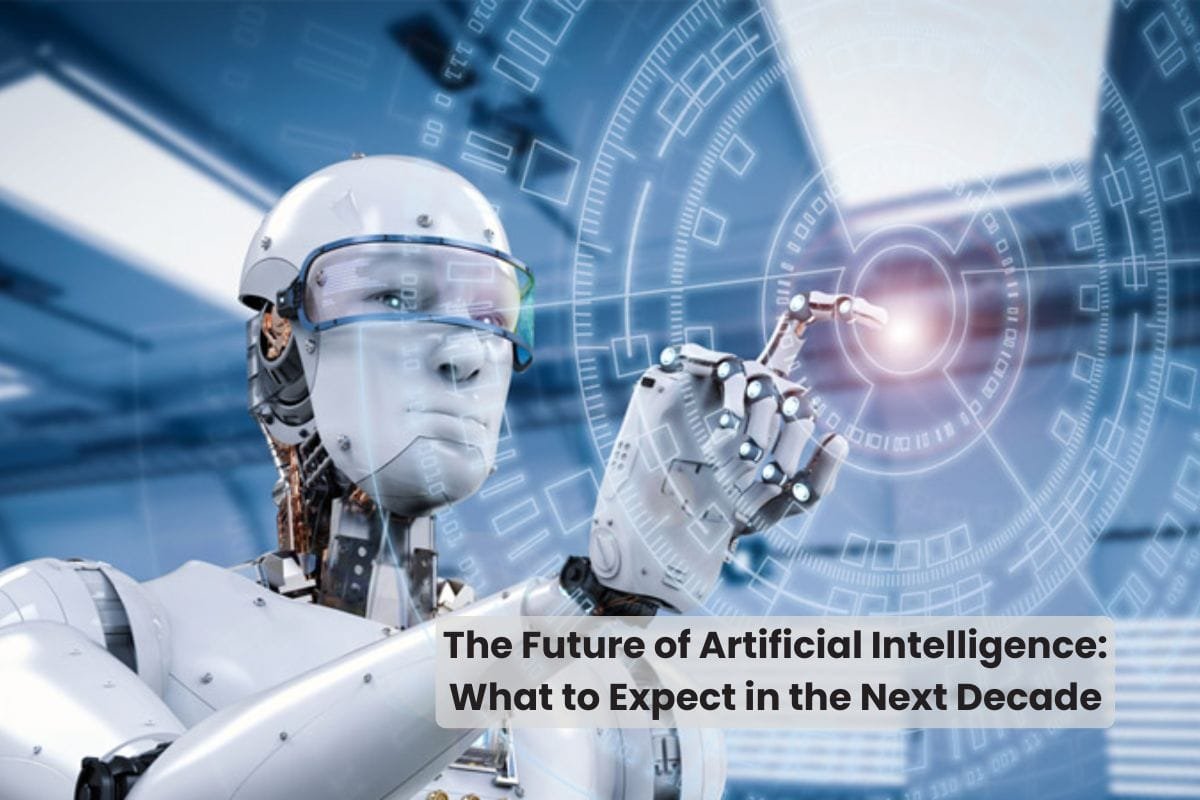These days, artificial intelligence (AI) is more than just a science fiction idea. The world is changing quickly due to this reality. Artificial Intelligence is permeating every aspect of our lives, from self-driving cars to voice-activated assistants like Alexa and Siri. However, what does AI’s future hold? This essay will discuss what to anticipate from AI as it develops over the next ten years.
1. AI Will Become Even More Integrated Into Our Lives
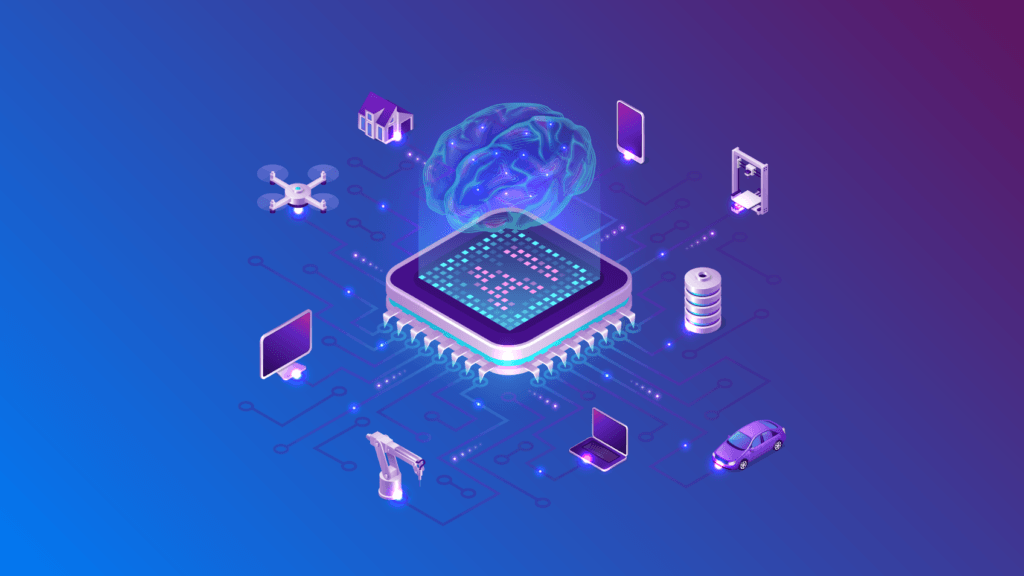
Artificial Intelligence is expected to play an ever larger role in our daily lives during the next ten years. As of right now, AI assists us with duties like answering inquiries, scheduling reminders, and managing smart home appliances. AI may eventually be able to perform even more difficult jobs, such as choosing for us or anticipating our wants before we are aware of them. Imagine an AI that can order groceries for you when you run low or that can change the temperature in your house according to your daily schedule.
2. The Growth of AI in Healthcare
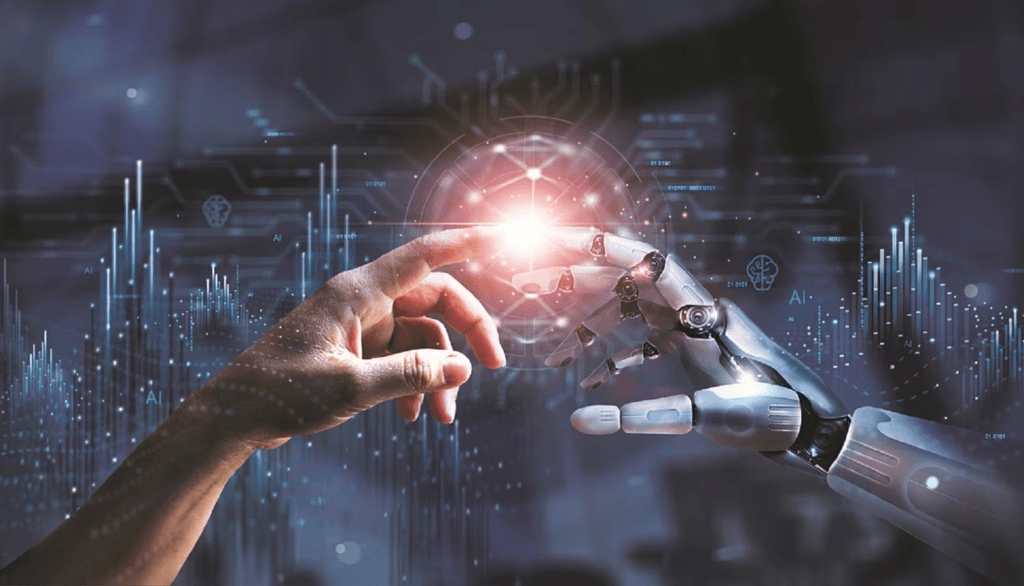
In the coming ten years, healthcare appears to be one of the most promising fields for AI. The way we identify and treat illnesses could be completely changed by AI. AI, for instance, can evaluate medical images far more quickly and precisely than humans, assisting physicians in the early detection of conditions like cancer. AI may also be used to analyze a patient’s specific genetic composition and medical background, which could help tailor treatment regimens. This implies that your chances of recovering will be increased if you subsequently obtain a treatment plan that is customized to meet your unique needs.
3. AI and the Job Market
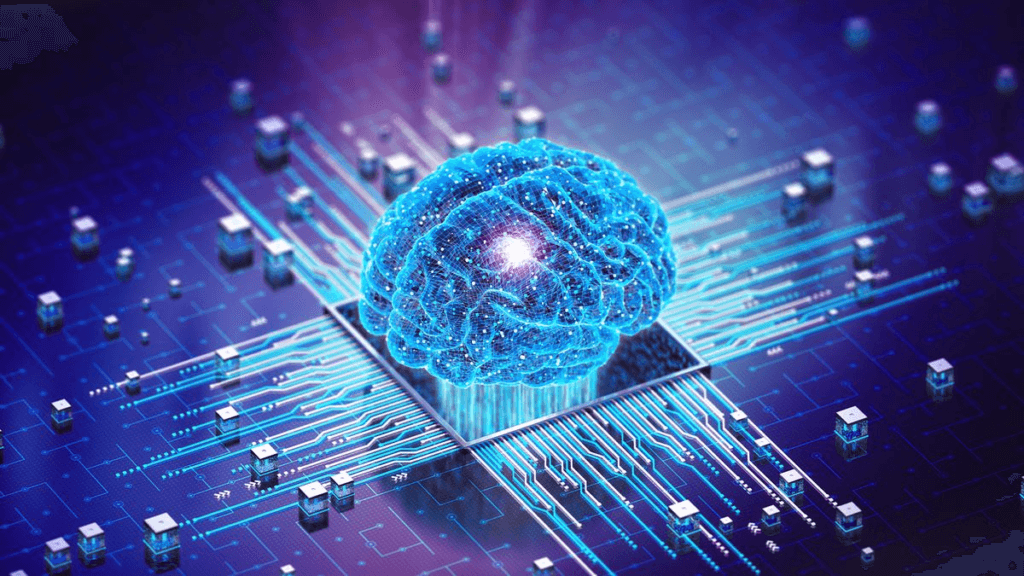
The employment market will surely be impacted by AI as it develops. When AI replaces manual labor-intensive tasks like data entry and basic customer support, some jobs may become obsolete. AI will, however, also lead to the creation of previously unimaginable new occupations. For instance, there will be a higher need for developers, maintainers, and enhancers of AI systems. AI may also simplify current employment by taking care of monotonous duties, freeing up workers to concentrate on more imaginative and significant work.
4. AI in Education

AI has the potential to change education. AI may be utilized to provide pupils with individualized learning experiences in the upcoming ten years. Imagine a classroom where each student has access to an AI tutor that knows their areas of strength and weakness and creates courses specifically for them that change as they learn. This could help students realize their full potential by improving the effectiveness and accessibility of education.
5. Ethical Concerns and AI
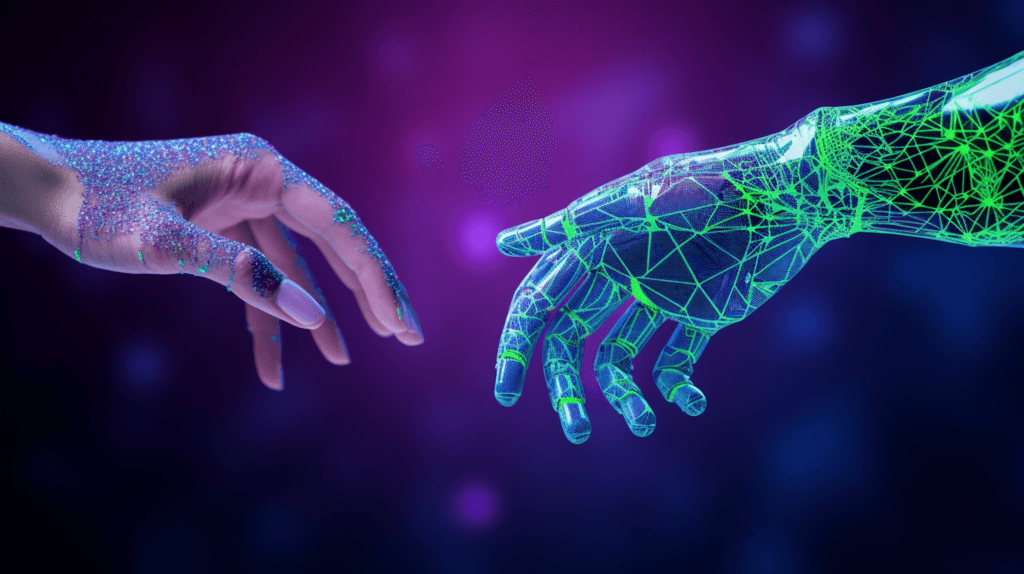
The prominence of ethical concerns will increase with the power of AI. How to guarantee that AI is used for good is one of the most important issues we’ll need to solve. For instance, how can we stop AI from being used maliciously and who will be held accountable if an AI makes a mistake? Concerns over privacy will also arise because AI systems will be gathering and analyzing enormous volumes of personal data. To make sure that AI is created and applied in a way that benefits everyone, it will be up to us as a society to set norms and regulations.
6. AI and Creativity

Although the idea of AI being creative may sound odd, within the next ten years, AI may be utilized to produce literature, music, and even artwork. Surprisingly good music and paintings can already be produced by AI systems. AI and human artists may work together to produce completely new kinds of art in the future. AI may provide artists with new resources and avenues for exploration, but it does not imply that technology will supplant human creativity.
7. AI in Transportation

AI will revolutionize transportation, and self-driving cars are just the start. AI has the potential to completely change how we travel in the upcoming ten years. AI might be utilized, for instance, to improve public transportation systems and increase their dependability and efficiency. AI may potentially be applied to aviation, perhaps leading to self-flying aircraft or automated decision-making systems for pilots. These developments may result in faster, safer, and more accessible transportation for all.
8. AI and the Environment

AI has the potential to be very helpful in solving environmental problems. AI might be used, for instance, to track and forecast environmental changes, which would improve our ability to respond to natural disasters. AI has the potential to optimize energy use, lowering carbon emissions and contributing to the fight against climate change. AI may be applied to the creation of new technologies and solutions that will aid in environmental protection during the course of the next ten years.
9. AI and Human Relationships

The increasing sophistication of AI may have an effect on human interpersonal connections. AI might be used, for instance, to develop virtual friends who help people practice social skills or offer emotional support. Although there may be benefits, such as a decrease in loneliness, this also begs the question of how humans relate to one another. Will AI improve our relationships by allowing us to spend more time with our loved ones, or will we become overly dependent on it for companionship?
10. The Future of AI Governance
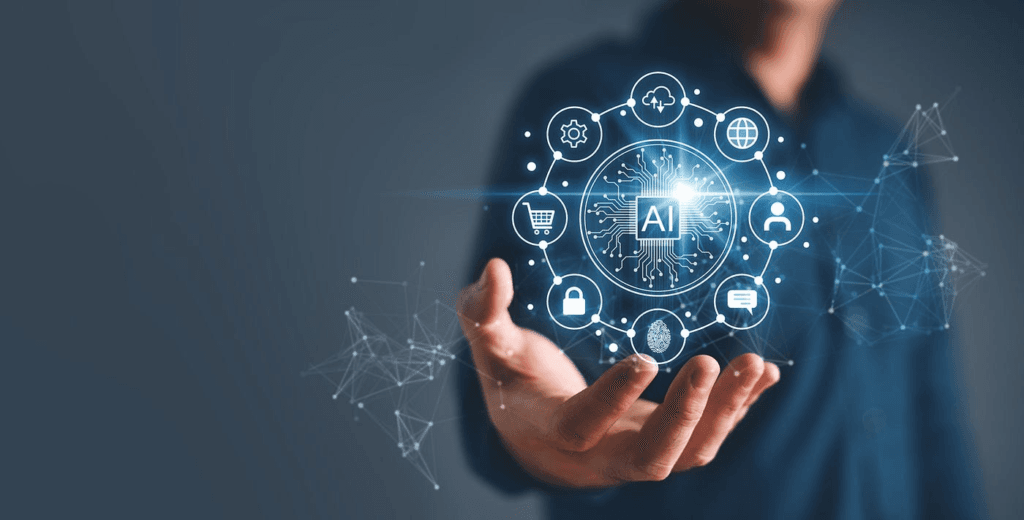
The necessity for governance and control of AI will increase as it gets more ingrained in society. Governments and organizations will have to collaborate to develop regulations that guarantee the ethical and responsible application of AI. This might entail forging global accords on AI advancement, formulating safety requirements for AI, and guaranteeing that AI is available to everyone, not just a select few. The decisions we make now will have a long-lasting effect on society, and the next ten years will be critical in determining the direction AI takes.
In summary
AI has a bright future ahead of it, and the ensuing ten years will be crucial to its advancement. AI has the power to drastically change practically every aspect of our life, including healthcare, education, transportation, and the environment. But even as we welcome these new technologies, we also need to be aware of the moral dilemmas they pose. We can build a future where artificial intelligence (AI) helps everyone by cooperating to make sure it is developed and applied ethically.
FAQs
Is AI going to replace humans in the workforce?
AI will probably automate certain tasks, but it will also open up new possibilities and simplify current ones.
How will AI change the medical field?
Thanks to its ability to improve diagnosis, personalize therapy, and increase efficiency, AI has the potential to completely transform the healthcare industry.
What ethical issues surround AI?
Privacy, responsibility, and making sure AI is used for benefit rather than harm are examples of ethical considerations.
Is AI capable of creativity?
Indeed, AI is capable of producing literature, music, and art—often in conjunction with human artists.
How will AI impact interpersonal interactions?
Though AI raises concerns about how it will affect our human connections, it may also offer new avenues for social interaction.











